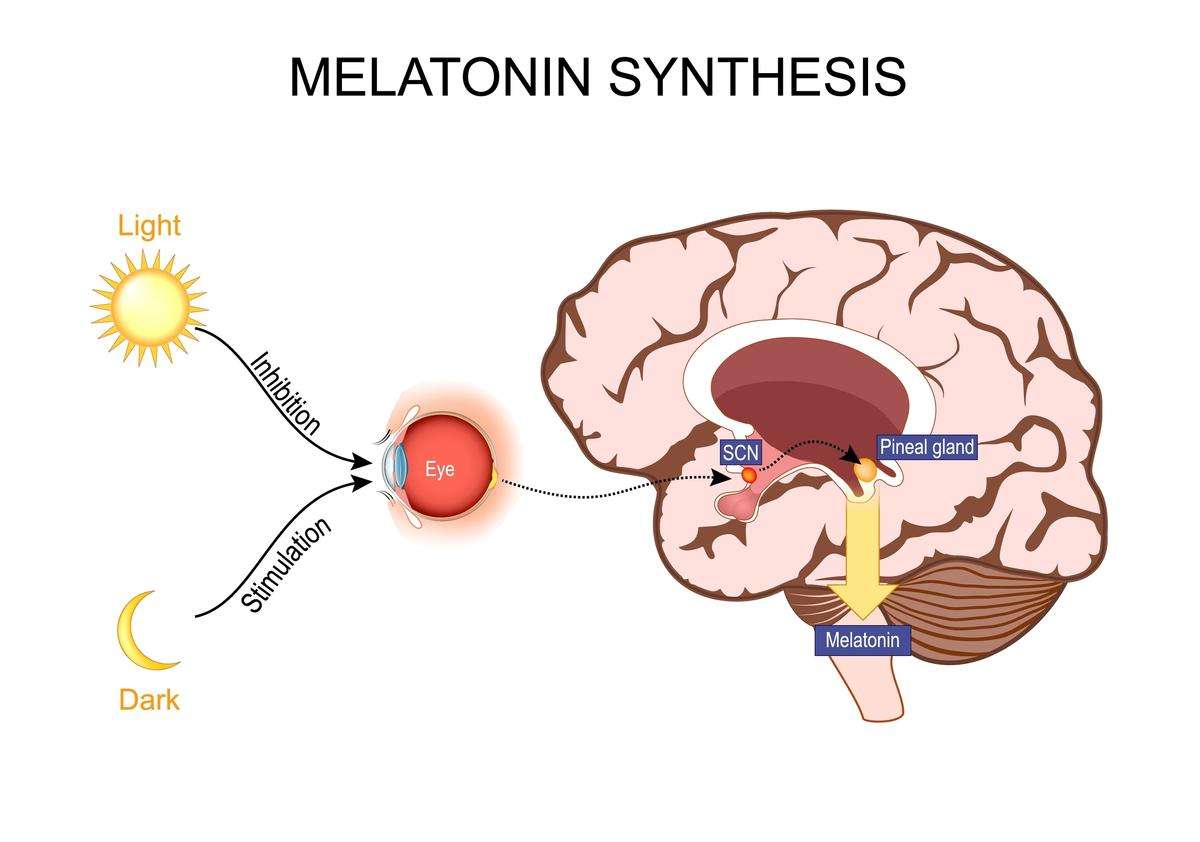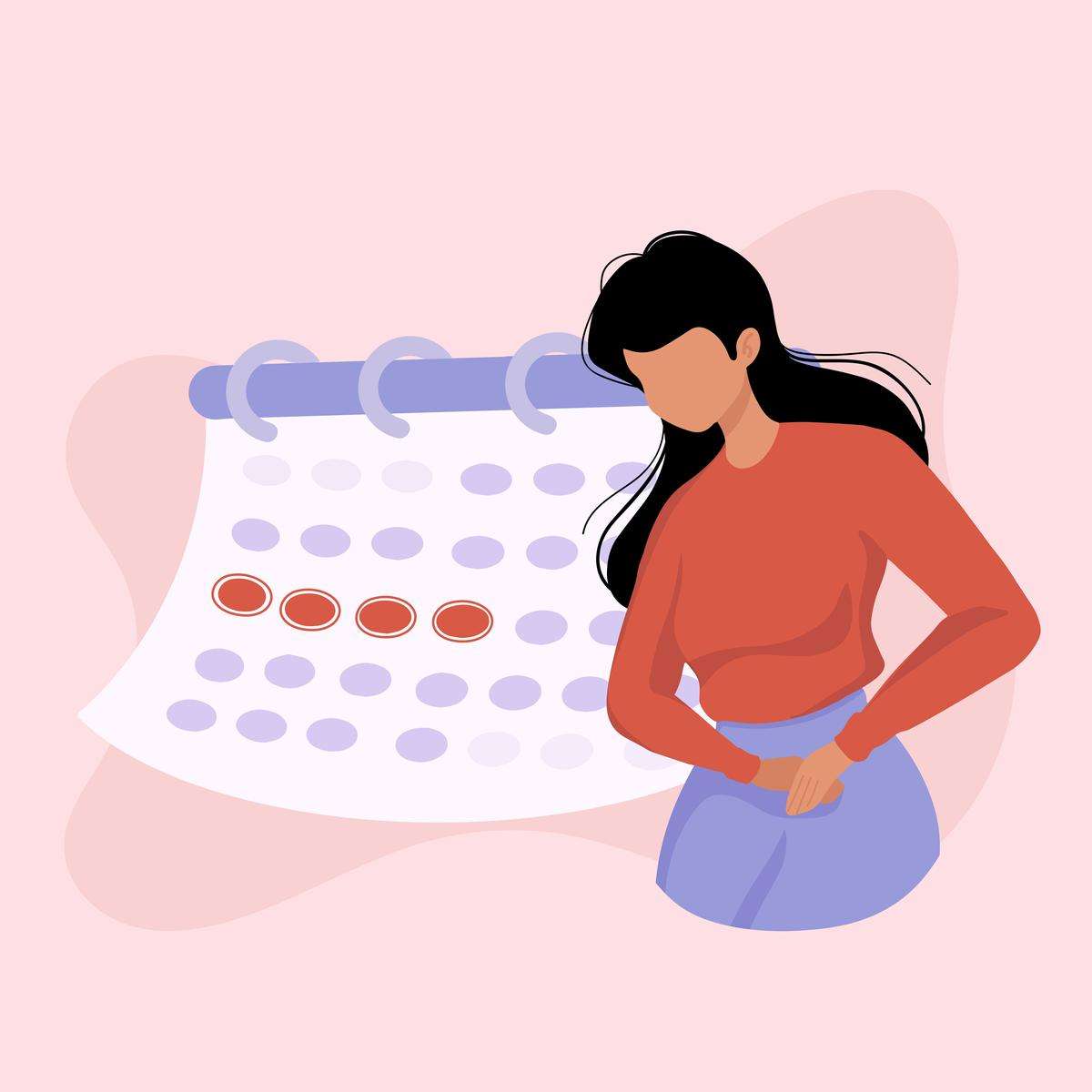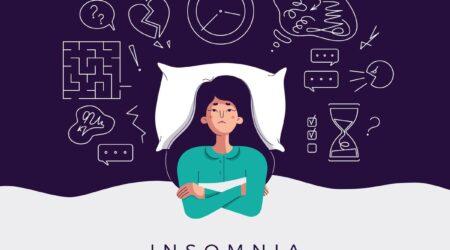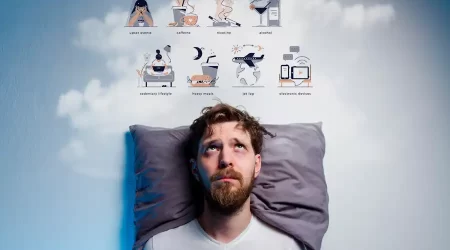Insomnia: A Nightmare Bedtime Story
Do you want to know the alpha and omega of Insomnia? If yes, you are at the right place. This article is everything you need.
What is Insomnia?
The title says it all. It is a disorder that won’t let you sleep at night. Imagine your life without sleep. Sounds like a nightmare, right? Well, this disorder is all about it. This is not a rare disorder for sure. It can significantly influence their general health and quality of life. It can be acute or chronic. Acute insomnia is short-term and often caused by a specific event or situation. Such as a stressful life event, jet lag, or changes in sleep schedule. Chronic insomnia, on the other hand, can have many different reasons. Medical conditions, medications, or psychiatric disorders are some of the conditions. Based on the pattern of sleep disturbance, there are many types of insomnia.

Let us discuss the related types.
Sleep-onset :
In this condition, you have trouble get asleep at the start of the night.
Sleep maintenance :
It can become difficult to stay asleep, with frequent awakenings throughout the night.
Early morning awakening :
The patient wakes up extremely early and is unable to fall asleep again.
Where does it’s story begin in the history of medical science?
- It’s early records are in Greek, Roman, and Egyptian texts.
2. The Greeks and Romans utilize numerous herbs and potions to treat insomnia. They thought it brings an imbalance of body fluids. Ebers Papyrus from Egypt mentions this disorder and its treatment. It dates back to 1550 BCE.
3. People of the Middle Ages view it frequently as a sign of demonic possession. Remedies include exorcism, prayer, and the use of amulets and talismans. But during the 17th and 18th centuries, doctors accept it as a real medical ailment.
4. The creation of Modern sleeping pills was in the 19th century. It was the result of the discovery of hypnotics like barbiturates and chloral hydrate. Unfortunately, these drugs frequently cause addiction. They also have side effects. This prompts the creation of newer, safer sleep aids like benzodiazepines in the 20th century.
5. Cognitive-behavioral therapy (CBT) and sleep routine These approaches focus on changes in behaviors and habits that may contribute to this disease. For eg. excessive caffeine intake, irregular sleep schedules, and poor sleep environments.
6. Today, doctors recognize it as a common and often chronic condition. This disorder can have a serious impact on quality of life and health in general. There is no cure for this type of disorder. But, there are a variety of treatments available, including medications, behavioral therapies, and lifestyle changes.
Discuss symptoms of Insomnia:
Difficulty falling asleep:
This symptom is the basic and common one.
Waking up frequently during the night:
A patient cannot get proper deep sleep. There is a consistent disturbance.
Waking up too early in the morning:
Unable to get 7-8 hours of good night’s sleep. People suffering from this disease generally can sleep for not more than 4-5 hours.
Feel tired or restless after sleeping:
There can be too many interruptions while sleeping. One cannot have a sound deep sleep. The body does not get the required rest. People experience persistent feelings of fatigue and drowsiness.
Daytime sleepiness:
One might feel sleepy even during the daytime.
Feel disturbed:
Without rest, one tends to feel disturbed, confused, and irritated.
Weak memory:
It is a challenge to focus and remember simple things.
Poor performance:
Because of low attentiveness productivity and performance might hamper.
Are there any specific underlying causes for this disease to occur?
Let us try to understand some of the causes behind this disease
Psychological factors:
Stress, anxiety, depression, and other mental health conditions can lead to insomnia.
Medical conditions:
Chronic pain, breathing difficulties, hormonal imbalances, and other health issues can cause insomnia.
Lifestyle factors:
Poor sleep habits, irregular sleep patterns, caffeine or alcohol use, lack of exercise, and an unhealthy diet all contribute to insomnia.

Medications:
Certain medications, antidepressants, asthma medications, and stimulants, can disrupt sleep and lead to insomnia.
Genetics:
There may be a genetic component to restlessness. This means that it runs in families and one can inherit it.
Available treatments in brief:
Let us try to know about different available treatments. In this answer, we will discuss each of these treatment options in detail.
Medications: Medications are often used to treat restlessness. This is done especially in the short term. Medications for it include benzodiazepines, non-benzodiazepine hypnotics, melatonin receptor agonists, and antidepressants.
Non-benzodiazepine hypnotics, such as zolpidem and eszopiclone, are newer medications. They work in a similar way to benzodiazepines. They are less likely to cause addiction and have fewer side effects than benzodiazepines. However, they can still cause drowsiness and impaired coordination.
Antidepressants, such as trazodone and doxepin, are sometimes used to treat this kind of disease. Particularly in individuals who also have depression or anxiety. These medications can help improve sleep quality and duration, as well as mood.
You can express your concerns about your illness and take advice on buying MODAWAKE 200MG
Lifestyle Changes: Lifestyle changes can play a crucial role.
-Train yourself for healthy sleeping habits.
-Try to stay away from stimulants:
Substances like caffeine and nicotine can disrupt sleep and make it harder to fall asleep.
-Don’t indulge in brainstorming activities just before bed.
A proper diagnosis of insomnia is crucial:
Treatment:
As insomnia can have a wide range of underlying causes, the best course of action will vary.
For instance, if anxiety is the root cause of sleeplessness, cognitive-behavioral therapy or anxiety medicines may be beneficial. Use of a continuous positive airway pressure (CPAP) machine may be part of the treatment. It is helpful if the condition is brought on by a sleep problem, such as sleep apnea.

To avoid complications:
Nighttime sleepiness, attention problems, and irritability are just a few of the unpleasant effects of insomnia. Because of diminished cognitive and physical performance, can also raise the risk of accidents. One can avoid these problems with proper identification and treatment of insomnia.
To detect medical issues:
Depression, anxiety, or chronic pain are a few examples of diseases. Insomnia may occasionally be a symptom of these diseases. These issues can be found and treated, which could also help with insomnia.
Enhanced quality of life:
Insomnia can badly affect a person’s quality of life. Proper diagnosis and treatment are crucial for better health.
Article in brief:
Insomnia is a disorder. It is difficult to fall asleep, stay asleep, or wake up early in the morning, with this illness. It can be acute, short-term, chronic, or long-term. Moreover, there can be a variety of underlying conditions that cause sleeplessness. Sleep-onset , sleep maintenance , and early morning awakening are types of insomnia. The basis of these issues is sleep disturbance patterns. It can lead to symptoms like tiredness, restlessness, and poor memory.
There are many different causes of the disease. Treatment options for insomnia vary depending on the severity and underlying cause of insomnia. One can use Medications such as benzodiazepines, non-benzodiazepine hypnotics, melatonin receptor agonists. Similarly, even antidepressants treat insomnia in the short term. Lifestyle changes include an establishment of a regular sleep schedule and a reduction in caffeine or alcohol. In a similar fashion, exercise, and a better diet can also help in reducing the effect of insomnia.







